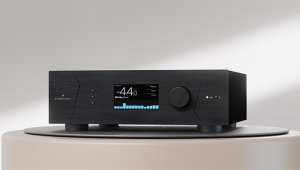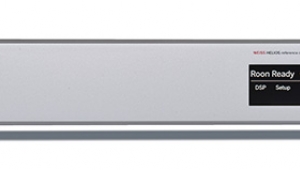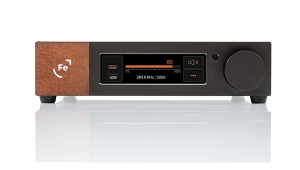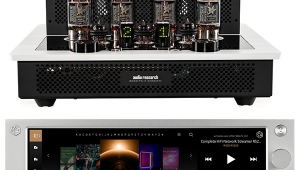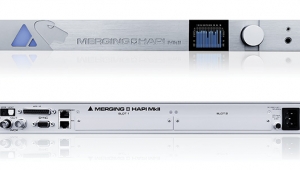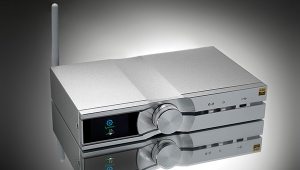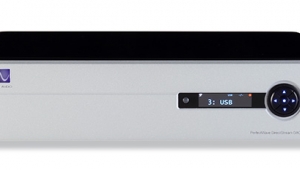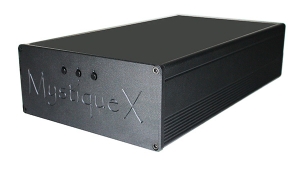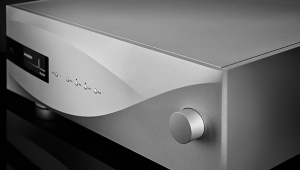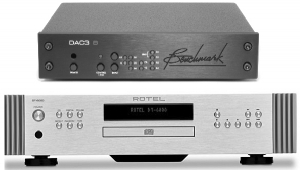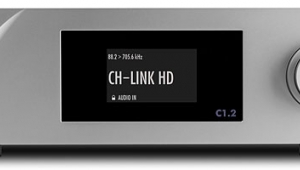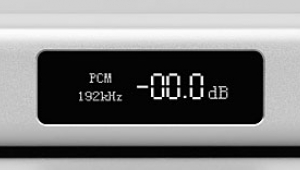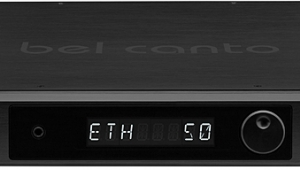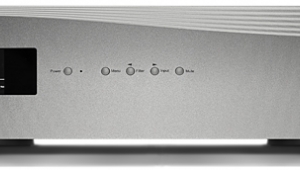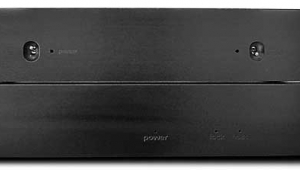| Columns Retired Columns & Blogs |
Channel Islands Audio Transient Mk.II & VDC•5 Mk.II USB D/A processor & power supply Page 2
Vawter says that some audio systems will need the assistance of the VDC•5 Mk.II power supply more than others, but I wasn't noticing too much with my rig—the sound was perhaps a tad more pinched during the song's choruses without the supply in place, but I'd be hard-pressed to recommend it as a must-have unless you can try it first. Still, I left it on for the rest of my listening. With the Transient and VDC•5, "Truckin'" possessed all of bassist Phil Lesh's low-end heft, which makes this song swing so nicely, with the voices (in tune or not) layered nicely, and the soundstage spread all around.
Joni Mitchell may have been from Canada, but California quickly claimed her, and she proceeded to turn out one classic album after another while living in the heart of Los Angeles. Her voice on "Coyote" (from Hejira) and "For Free" (Ladies of the Canyon), both from CD rips, revealed the one subtle weakness I detected in the Transient compared to DACs in the next price tiers, such as the NAD M51 Direct Digital ($1999) or Ayre Acoustics' QB-9 ($3250): a slight lack of focus that rendered the higher frequencies a little fuzzy. Perhaps this effect was a result of the filtering used in the Transient. Vawter told me CIAudio uses a simple single-pole filter in the DAC's analog section, and that "More filtering could be used to get better THD+noise figures, but we feel the mild filtering offers better musicality." John Atkinson will probably be able to pinpoint this in his measurements.
Say what you will about the suspect origins of the group and who actually played what—there's some great pop music on the records released by the Monkees, another California creation (okay, corruption), and now almost all of their albums are inexplicably available in 24/192, also from HDtracks. These are guilty pleasures for sure, but who can resist the charms of "For Pete's Sake," from Headquarters; or "Pleasant Valley Sunday," from Pisces, Aquarius, Capricorn & Jones Ltd.; or, especially, "Daydream Believer," from The Birds, the Bees & the Monkees? The sound quality is uneven, but sometimes, dodgy sonics can be useful in evaluating audio gear.
Oddly enough, I think the slight fuzziness I heard with Joni Mitchell works to the music's advantage with recordings like these. Top-end clarity is not the strong suit of Monkees music—these recordings were tightly compressed for AM-radio friendliness. The Transient made the most of this hash, mellowing the mix a bit. That said, keep in mind that we're talking DACs here—the differences between well-designed products are very, very subtle.
The Transient has no remote control, and using it as a preamp between my computer and amps revealed one trait that bugged me a bit: the volume control was a little pokey when going from one extreme to another. It has an automatic mute function that quickly lowers the volume, and another that shoots it up to line level, but moving from soft to loud or back was certainly on the slow-but-safe side.
Not corrupting our youth
I'm lucky to live in an area with a great audio club, and invited one of the nearby members over for some listening. Danny Fahy is the classic laid-back California surfer/college professor who spends his free time scanning waves and obsessing over his audio system. We began with general listening for an hour or so, then zeroed in on some comparisons.
Danny came loaded with music he wanted to hear: Pentangle's Sweet Child (CD rip), Alice Cooper's Billion Dollar Babies (HDtracks), Baba Scholae's 69 (from Linn's download website), Funkadelic's Music for Your Mother (CD rip), and the Smiths' Meat Is Murder (HDtracks). His selections were delightfully all over the place. As the afternoon wore on, I pulled out a bunch of random tracks of my own.
We began by comparing the Transient with VDC•5 power supply to Benchmark's new DAC2 HGC ($1995), both run through my preamp. The Transient seemed more forward and bright, but then we noticed that the levels weren't perfectly matched. Danny pulled out his iPhone with Studio Six Digital SPL meter app, and I grabbed my trusty RadioShack Meter. Both revealed a difference of 0.5–1dB in favor of the Transient. We set its volume control back a few clicks until the levels perfectly matched, then proceeded.
Now it was much tougher to tell Benchmark from Transient, and we settled in to try to pick out the nuances. The Benchmark is a wonderful-sounding DAC (all impressed, JA e-mailed me about it last month), with several features the Transient lacks: headphone amp, analog input, and S/PDIF and TosLink inputs. It's also roughly twice the price of the Transient-VDC•5 package—we wondered how close the sound of the CIAudios could get to such a stellar design.
Surprisingly close, it turned out. Danny: "Not as much difference as I expected, though the Benchmark feels more grounded." I agreed. We were able to switch back and forth for each other, sighted and blind, depending on who was doing the switching, trying to get a handle on the DACs' personalities.
I'll take a moment here to pitch Baba Scholae's 69, which Danny had brought along. Recorded in 1969 by French prog rockers Jean-Yves Labat de Rossi and his "partners in crime," this one took me completely by surprise. Fantastic analog sound (the Linn download is 24/96), and great, timeless playing that had me wondering how this one had escaped me till now. If you like vintage proggish rock, go to www.linnrecords.com and give it a listen—I'm guessing very few readers have heard it.
In 69's first track, "1984—Melancholia Street," the band goes through so many changes in eight minutes that it's a no-brainer for component evaluation. Danny was starting to pick out the Transient consistently, noting that the two DACs had comparable bottom ends, but that the Benchmark was slightly more refined at the top. "The slight brightness from the Transient might wear on me over time," he said.
Still, the Benchmark and CIAudios were closer than we'd expected, and we were pleased with what the Transient could do—especially when we swapped in the latest version of AudioQuest's DragonFly USB DAC (see "The Entry Level" elsewhere in this issue). Though I'm impressed with what comes out of the DragonFly's diminutive and cheaper ($249) package, the differences here were more obvious. Danny observed that the DragonFly had a "smaller soundstage and was slightly more compressed sounding." Again, I had to agree.
Our final test was to use the Transient between the computer and the Benchmark's S/PDIF input. We felt the results were consistent with what we'd heard before, indicating that the Benchmark had been doing a good job with the USB directly from the computer all along, and that the Transient was doing nothing to hinder the sound. Unfortunately, I had no other S/PDIF-only or I2S DACs on hand, to see if the Transient could improve their sound.
Conclusions
With or without the VDC•5 Mk.II power supply, Channel Islands Audio's Transient Mk.II is smack dab in that sweet spot where the amount of DAC value per buck is greatest—and luckily, there are plenty of USB DACs in the $400–$1500 range to check out. The ones I've had in my system in the last few years include models from HRT, Meridian, M2Tech, Musical Fidelity, Peachtree, Rega, Schiit, and Wadia. Each is a solid product, and all are carefully designed to minimize compromises and deliver bang for the buck.
The Transient Mk.II holds its own comfortably in this crowd, reminding me in many ways of the Schiit Bifrost: great build quality for the price, and sound that's solid in the low end, with a little fraying on top noticeable only in direct comparisons with more expensive DACs. But within its price range, it's up there with the best.
Sound aside, the Transient Mk.II's unique combination of features may be all the reason you need to give it a try. I could see it happily heading up a minimalist computer-audio and/or desktop system, or running interference between a computer and an S/PDIF–I2S DAC.
- Log in or register to post comments
